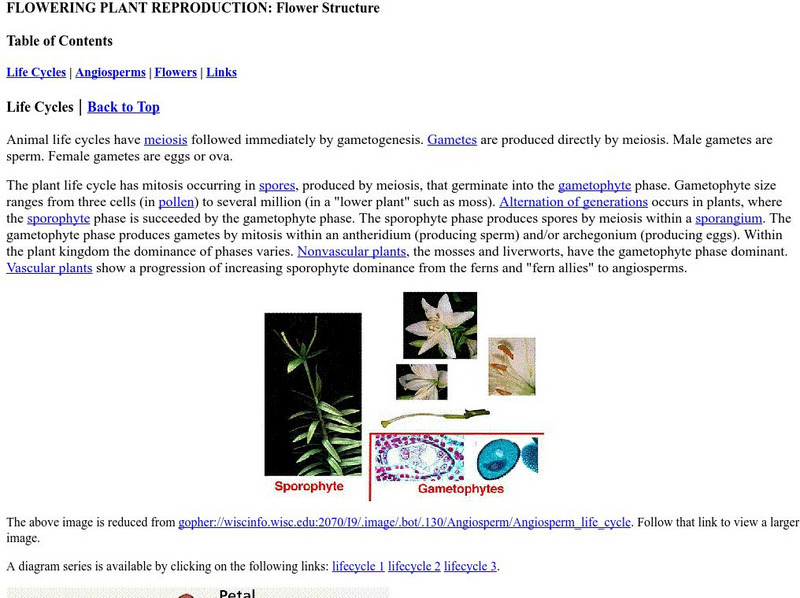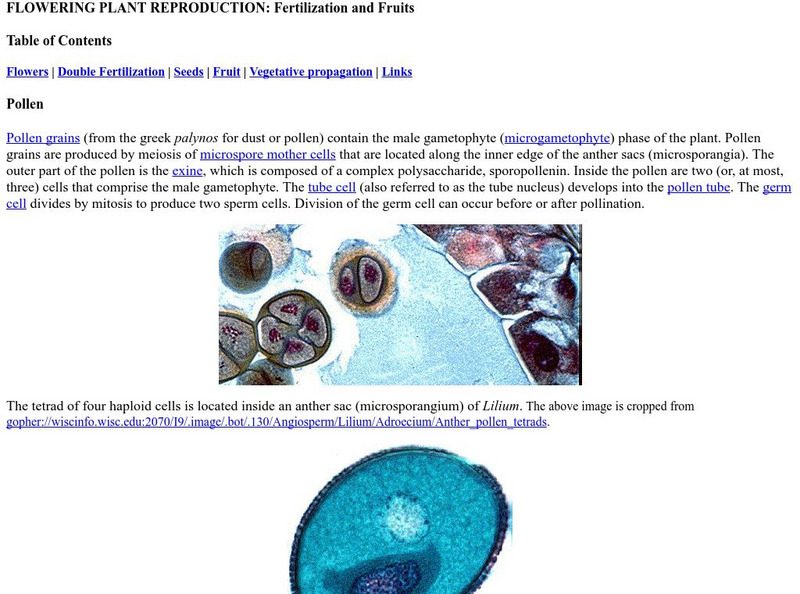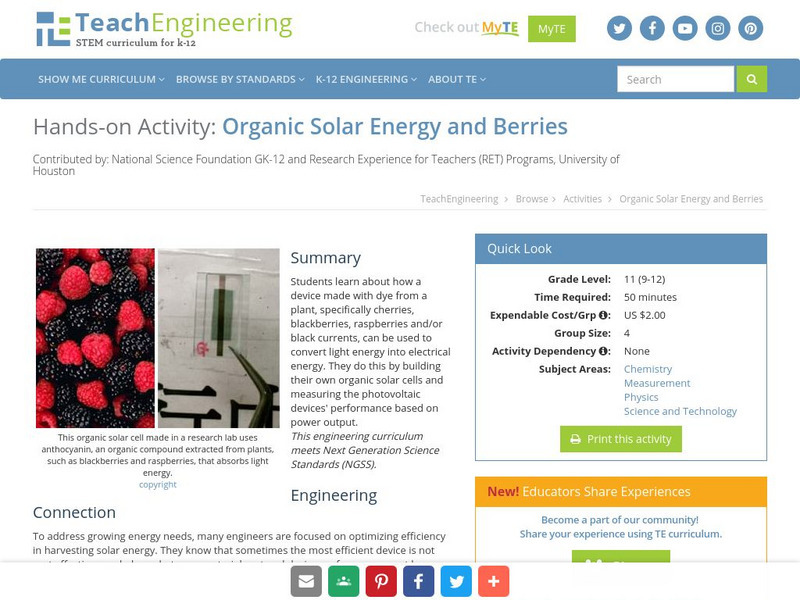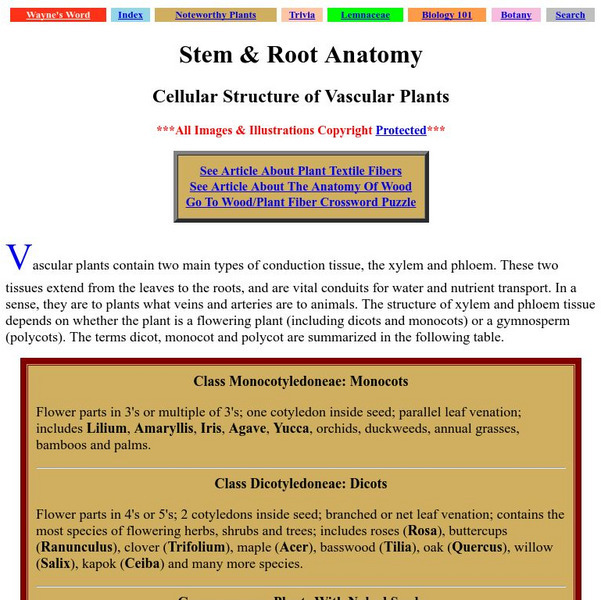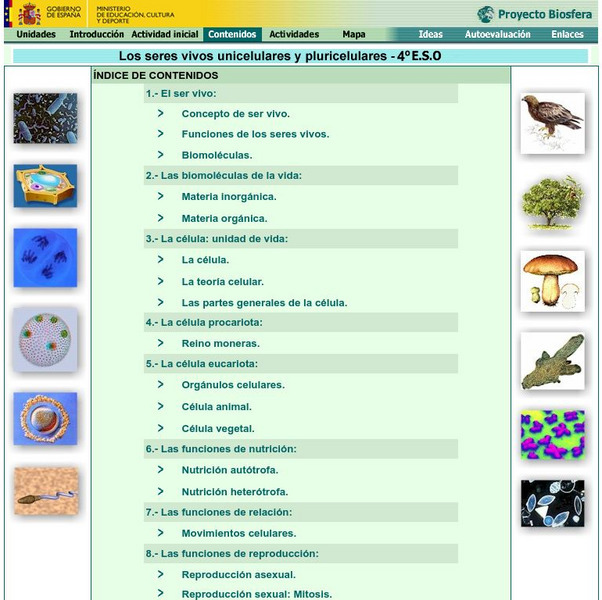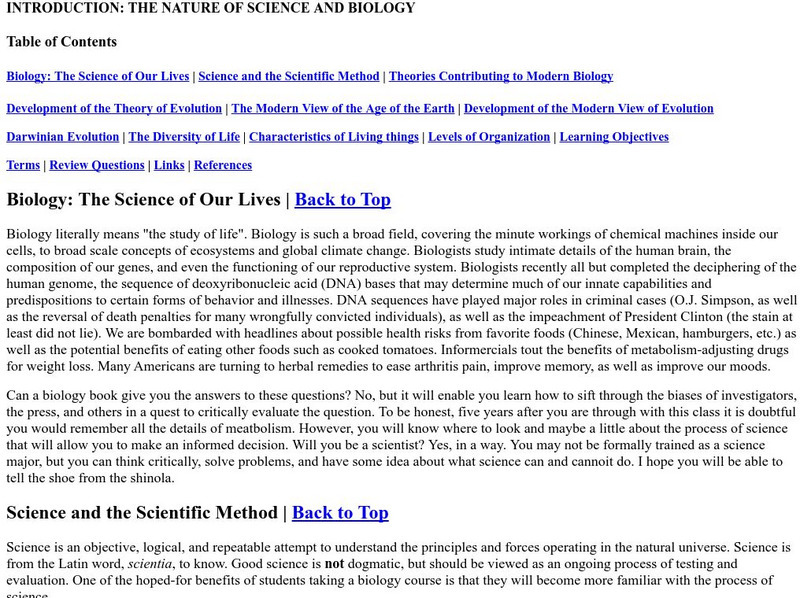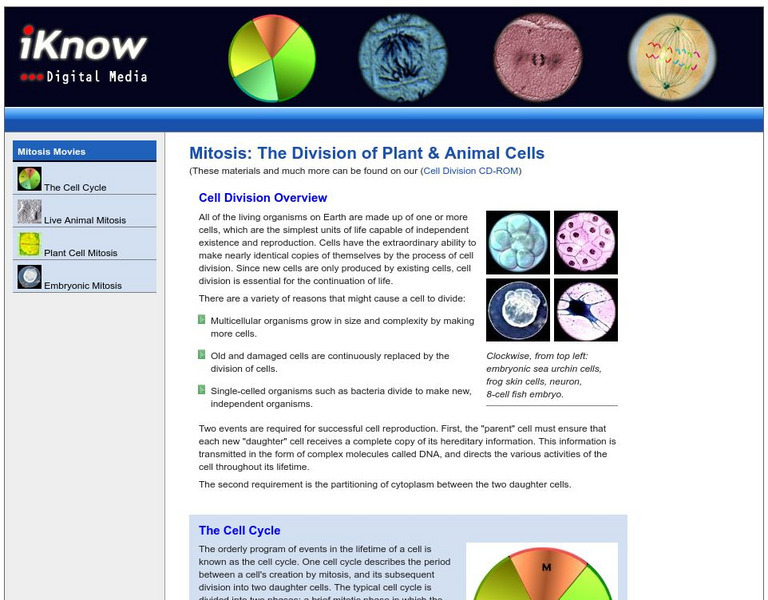Hi, what do you want to do?
Ducksters
Ducksters: Biology for Kids: Plant Defenses
Kids learn about plant defenses in the science of biology including cell walls, thorns, bark, chemical defenses, and even plants that fight back.
Estrella Mountain Community College
Estrella Mountain Community College: Flower Structure
Site covers all aspects of plant reproduction such as life cycles, angiosperms and flowers. Provides links to other sites to aide in research.
Cornell University
Cornell University: Meiosis in Lily Anther Microsporocytes
This cell biology page is illustrated with photographs of plant meiosis taking place in a cell.
TeachEngineering
Teach Engineering: Photosynthesis Life's Primary Energy Source
This lesson covers the process of photosynthesis and the related plant cell functions of transpiration and cellular respiration. Students will learn how engineers can use the natural process of photosynthesis as an exemplary model of a...
Estrella Mountain Community College
Flowering Plant Reproduction: Fertilization and Fruits
Provides information and illustrations of the reproduction process in flowers. Learn more about flowers, double fertilization, seeds, fruit and vegetative propagation.
BiologyWise
Biology Wise: Chloroplast: Structure and Function
The structure and functions of chloroplasts are described in detail here.
BiologyWise
Biology Wise: Vacuole Analogy
Explains what vacuoles are and what their functions are in animal cells and plant cells, and offers analogies to help students understand their different roles.
University of Nebraska
University of Nebraska: Transpiration Water Movement Through Plants
This tutorial examines how water moves through a plant. Follow the pathway that water takes through plants from the roots to evaporation from cells in the leaves. Learn what controls rates of transpiration, how environmental conditions...
TeachEngineering
Teach Engineering: Organic Solar Energy and Berries
Students learn about how a device made with dye from a plant, specifically cherries, blackberries, raspberries and/or black currents, can be used to convert light energy into electrical energy. They do this by building their own organic...
TED Talks
Ted: Ted Ed: What Does the Liver Do?
There's a factory inside you that weighs about 1.4 kilograms and runs for 24 hours a day. It's your liver: the heaviest organ in your body, which simultaneously acts as a storehouse, a manufacturing hub, and a processing plant. This...
TeachEngineering
Teach Engineering: Glowing Flowers
Student teams learn about engineering design of green fluorescent proteins (GFPs) and their use in medical research, including stem cell research. They simulate the use of GFPs by adding fluorescent dye to water and letting a flower or...
Science Buddies
Science Buddies: A Juicy Project: Extracting Apple Juice With Pectinase
This is a basic project on the effect of enzymes on apple slices. The goal of the project is to monitor enzyme activity by measuring the amount of apple juice released by pectinase.
BiologyWise
Biology Wise: Lysosome Structure
Lysosomes are found in both plant and animal cells. The structure and functions of this cell organelle are described here, with note made of the diseases that can be caused by defective lysosomes.
BiologyWise
Biology Wise: Endoplasmic Reticulum Analogy
The endoplasmic reticulum is compared to a manufacturing plant with an assembly line to help students understand the functions of this important cell organelle.
Palomar Community College District
Palomar College: Stem & Root Anatomy
This is an advanced review from Palomar College of the types of cells that make up conducting tissue in stems and roots. The photos and diagrams are excellent!
BiologyWise
Biology Wise: Structure and Function of a Casparian Strip
The Casparian strip is found in the endodermis layer of a plant's roots and it assists the plant in absorbing water and nutrients from the soil. The structure of a plant root is described and the process by which the Casparian strip...
National Institute of Educational Technologies and Teacher Training (Spain)
Ministerio De Educacion: Los Seres Vivos Unicelulares Y Pluricelulares
In this unit you will be introduced to the complexity of living things. It also reviews the kingdom of nature, differentiating between their main features from those who are microscopic unit-cellular to the multi-cellular visible to the...
Estrella Mountain Community College
Online Biology Book: The Nature of Science and Biology
Use the scientific reasoning and critical thinking to take an in-depth look at the basics of biology.
Ducksters
Ducksters: Biology for Kids: Plants
Find some information about plants on this site. Learn about the science of biology including the cell, what makes a plant, types of plants, fun facts, and the basic structure.
Other
I know.net: Mitosis
A complete site from iKnow.net that compares the various phases of mitosis in plant and animal cells. Text is supplemented with pictures of each phase.
University of Hamburg
University of Hamburg: Osmosis
Why does a plant wilt? It all has to do with turgor pressure. Find out more about turgor pressure and osmosis.
Sophia Learning
Sophia: Central Vacuole: Lesson 4
This lesson will discuss the structure and function of the central vacuole. It is 4 of 4 in the series titled "Central Vacuole."
Other
Endoplasmic Reticulum
This site provides information on the schematic and electron micrograph of endoplasmic reticulum function of both smooth and rough endoplasmic reticulum.
University of Hamburg
University of Hamburg: Chloroplasts and Other Plastids
This site provides detailed information on chloroplasts. Explains the many duties that chloroplasts perform and why they are so important. Good diagrams.
Other popular searches
- Animal and Plant Cells
- Specialized Plant Cells
- Animal Cells Plant Cells
- Animals and Plant Cells
- Animal & Plant Cells
- Compare Plant Animal Cells
- Animal Plant Cells
- Plant Cells Photosynthesis
- Plant Cells Edible Projects
- Label Plant and Animal Cells
- Plant Animal Cell Diagram
- Plant Cells Organelles






